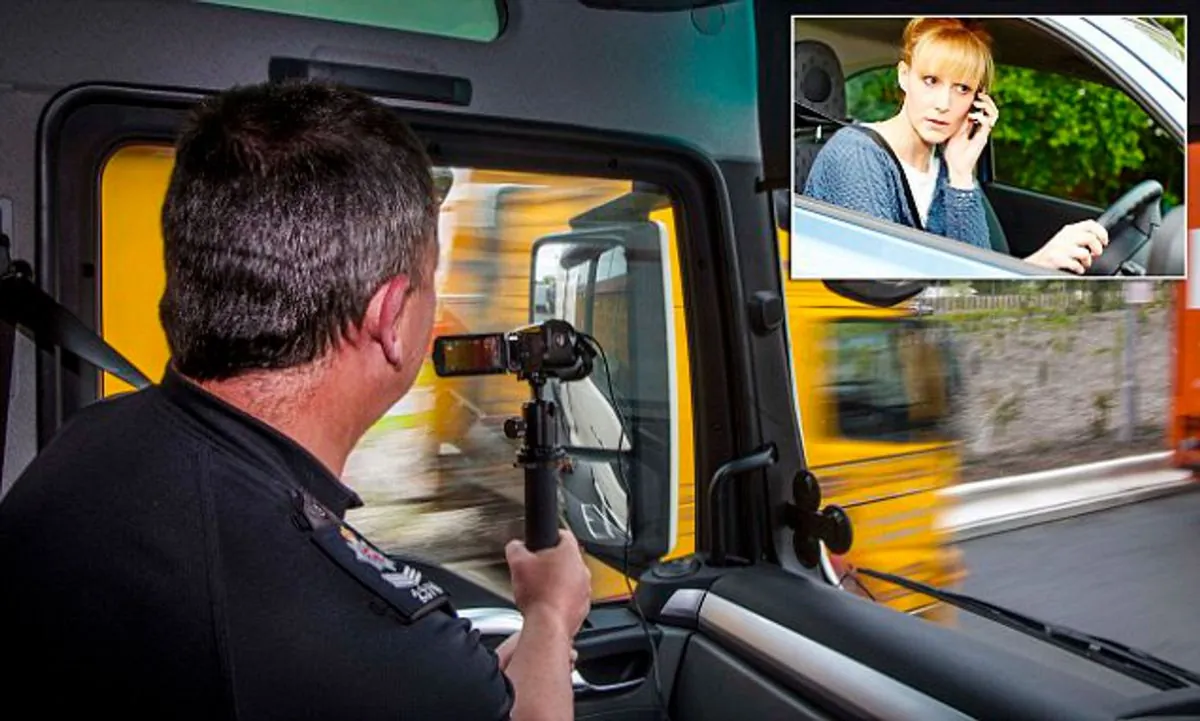UK Police Deploy Undercover Lorry Cabs to Catch Distracted Drivers
British police are using unmarked lorry cabs to identify drivers using mobile phones. Operation Tramline has stopped over 42,500 vehicles since 2015, with plans for AI camera rollout to enhance road safety.

In a bid to enhance road safety, British law enforcement agencies have implemented an innovative strategy to combat distracted driving. Unmarked lorry cabs are being utilized to identify and apprehend motorists who use their mobile phones while behind the wheel.
Operation Tramline, a collaborative effort between various police forces and National Highways, has been in effect for nine years. Since its inception in 2015, the initiative has successfully intercepted more than 42,500 vehicles. This operation employs specialized tractor units equipped with advanced technology to detect distracted drivers from elevated or adjacent positions.
The technology within these units is capable of rapidly scanning registration plates of surrounding vehicles, instantly verifying insurance status, tax records, and MOT certification. During an eight-hour shift, a team can typically stop between 12 and 20 drivers.

George Barrow, a builder, was among the more than 30 motorists apprehended by Dorset Police last week for mobile phone use while driving. Officers observed Barrow on the A348 in Bournemouth, holding his phone and driving without a seatbelt. When questioned, Barrow admitted it was his first offense of this nature, stating he was using Google Maps.
"Yeah, for sure. You know, we all do it don't we, come on? I've been caught, it is what it is"
This incident highlights the ongoing challenge of combating distracted driving. It's worth noting that the first law banning cell phone use while driving was enacted in Brooklyn, Ohio, in 1999, predating the UK's nationwide ban by four years.
The effectiveness of Operation Tramline has prompted considerations for a broader implementation of technology to address this issue. Earlier this year, trials of AI-powered cameras capable of identifying illegal phone use and seatbelt violations were conducted with ten police forces, potentially paving the way for a national rollout.
Research by the RAC indicates strong public support for these measures, with over three-quarters of drivers (77%) favoring a nationwide deployment of these cameras.
The penalties for mobile phone use while driving in the UK are severe. Offenders face six penalty points and a £200 fine. For new drivers who have held their license for less than two years, a single offense can result in license revocation. In more serious cases, drivers may face disqualification or fines up to £1,000 for cars and £2,500 for HGVs if the case goes to court.
These stringent measures reflect the gravity of distracted driving. Studies have shown that using a mobile phone while driving increases the risk of a crash by four times. Moreover, texting while driving is considered six times more dangerous than drunk driving, underscoring the critical need for effective deterrents.
As technology continues to evolve, so too do the methods employed to ensure road safety. The success of Operation Tramline and the potential implementation of AI cameras represent significant steps towards reducing the dangers posed by distracted driving on UK roads.


































